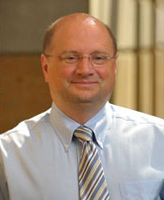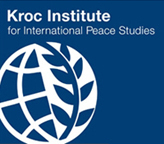
Scholars at the University of Notre Dame’s Kroc Institute for International Peace Studies have been following with special interest the tumultuous events transforming Egypt, Tunisia, Lebanon, Yemen and other countries in the Middle East.
“The phrase ‘history-making’ may well apply to the unfolding drama gripping the Middle East and indeed the world,” says Scott Appleby, professor of history and director of the Kroc Institute, a leading center for the study of violent conflict and strategies for sustainable peace.
“A generation ago, non-violent, justice-driven revolutions erupted from Eastern Europe to the Philippines, captivating the imagination of peacebuilders and humanitarians everywhere,” he says. “How much of this phenomenon are we witnessing today, and how can we apply lessons from the past and fresh insights from our own research? This is the opportunity before us at the Kroc Institute, as we strive to interpret the meaning of the history-making developments before us.”

To draw faculty, students and the community into this conversation, the Kroc Institute has organized a public panel titled “Democratic Revolution in the Middle East? The Rise of Civil Disobedience in Tunisia, Egypt, Lebanon, and Beyond.”
The panel, which is free and open to the public, will be held on Wednesday, February 9 at 4 p.m. in the Hesburgh Center Auditorium.
The following Kroc Institute faculty experts will review recent events in the Middle East and examine the implications for nonviolent social change and the realignment of political dynamics in the region.
- Emad Shahin, Henry R. Luce Associate Professor of Religion, Conflict and Peacebuilding;
- Asher Kaufman, associate professor of history and peace studies;
- David Cortright, director of policy studies;
- Atalia Omer, assistant professor of religion, conflict and peace studies (moderator).
Learn More >
- Kroc Institute for International Peace Studies
- Scott Appleby faculty page
- Emad Shahin faculty page
- Asher Kaufman faculty page
- David Cortright faculty page
- Atalia Omer faculty page
Originally published at newsinfo.nd.edu.


